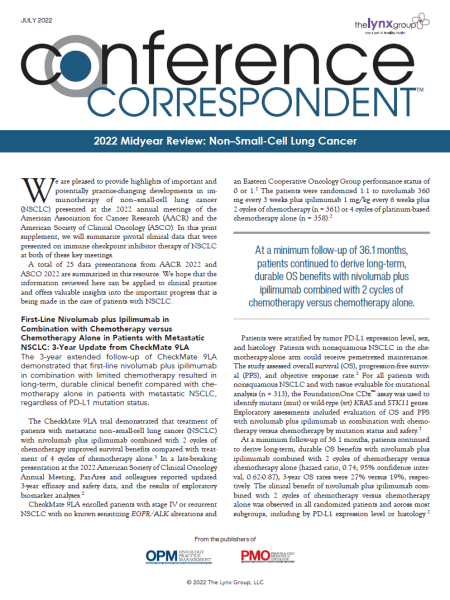Tarloxotinib treatment was well tolerated and sizeable percentages of patients in both study cohorts achieved either partial response or stable disease.
Tarloxotinib is a hypoxia-activated prodrug of a pan-ErbB kinase inhibitor that has shown preclinical efficacy in EGFR exon 20 and HER2-mutant non–small-cell lung cancer (NSCLC), as well as other oncogenic alterations in the ERBB gene family, such as NRG1 fusions. RAIN-701 was an open-label, single-arm phase 2 trial that evaluated tarloxotinib in patients with advanced NSCLC harboring an EGFR exon 20 insertion (cohort A) or HER2-activating mutation (cohort B) with progressive disease after platinum-based chemotherapy or with any solid tumors harboring an NRG1, EGFR, HER2, or HER4 fusion (cohort C). The researchers reported the first results of the RAIN-701 trial during the ESMO Virtual Congress 2020.
The study’s primary end point was objective response rate per Response Evaluation Criteria in Solid Tumors version 1.1. The trial included 23 patients (cohort A, N = 11; cohort B, N = 11; cohort C, N = 1) treated with intravenous tarloxotinib 150 mg/m2 weekly; 20 of the 23 patients were evaluable (11 in cohort A; 9 in cohort B). The disease control rate in evaluable patients was 60%. In cohort A, 55% exhibited stable disease and 45% had disease progression. In cohort B, 22% showed a partial response, 44% exhibited stable disease, and 33% had disease progression; 3 patients were treated beyond 6 months. Treatment-emergent adverse events (TEAEs) were mostly grade 1/2. The most frequent (>20%) TEAEs were prolonged QTc (60.9%), rash (43.5%), nausea (21.7%), and diarrhea (21.7%). Grade 3 TEAEs included prolonged QTc (34.8%), rash (4.3%), diarrhea (4.3%), and increased alanine aminotransferase (4.3%). Dose reduction was required in 5 of 23 (21.7%) patients. Tarloxotinib was discontinued in 1 of 23 patients (4.3%) because of a drug-related adverse event (infusion reaction).
The researchers concluded that tarloxotinib demonstrated antitumor activity and was well tolerated, with low rates of severe toxicities (such as rash and diarrhea) in patients with NSCLC; more than half of patients with EGFR exon 20 insertion achieved stable disease and two-thirds of those with HER2-activating mutations achieved either partial response or stable disease.
Reference
Liu SV, et al. ESMO 2020. Abstract LBA61.

